The NWSL agreed to a major settlement with the attorneys general of New York, Illinois, and Washington, DC, on Wednesday, capping a two-year investigation into the abuse allegations outlined in the 2022 Yates Report.
The NWSL must now create a $5 million restitution fund to compensate athletes who experienced abuse. The league is also required to continue implementing comprehensive player safety reforms.
"For too long, the hardworking and talented women of the National Women's Soccer League were forced to endure an unacceptable culture of abuse, harassment, and retaliation," said New York Attorney General Letitia James. "This settlement sends a clear message that such misconduct will not be tolerated and ensures players receive the compensation and protections they deserve."
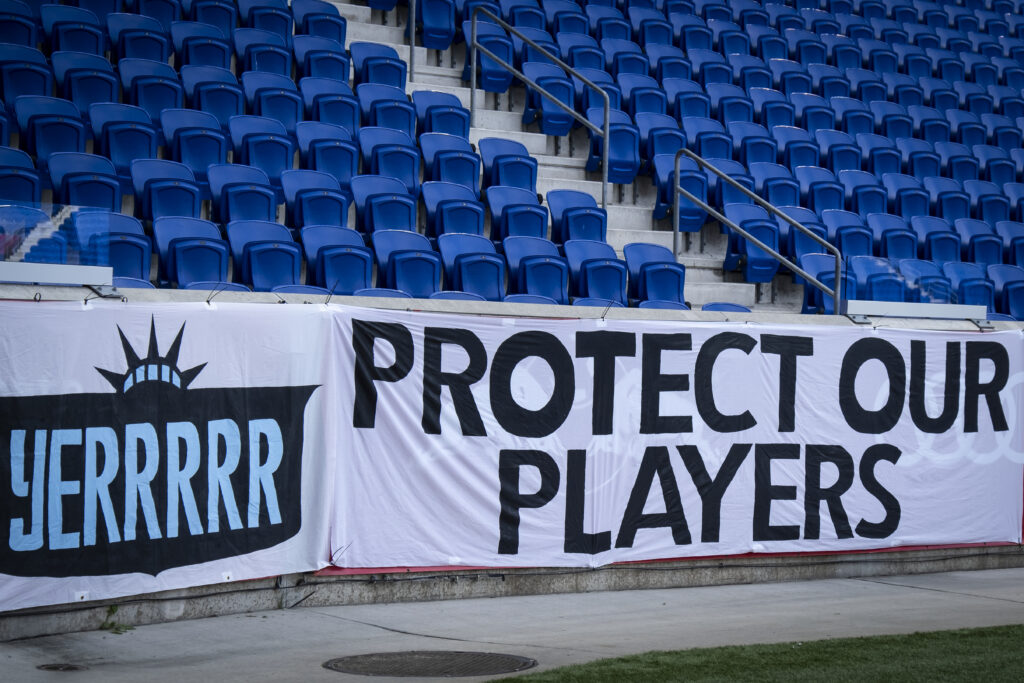
Years of investigation led up to the NWSL settlement
Whistleblowers initially exposed a culture of harassment and sexual misconduct within multiple NWSL teams in 2021. As a result, US Soccer's subsequent Yates Report suggested extensive reforms were needed at both the league and club level.
In the fallout surrounding that 2022 report, the attorneys general initiated their own joint investigation. They ultimately found credible allegations, as well as a culture of abuse, neglect, and retaliation against athletes who spoke up.
This "widespread violations of players' fundamental rights" prompted the attorneys general to award the restitution. They also codified reforms that grant them oversight and enforcement rights, ensuring league protocols are followed and players are protected.
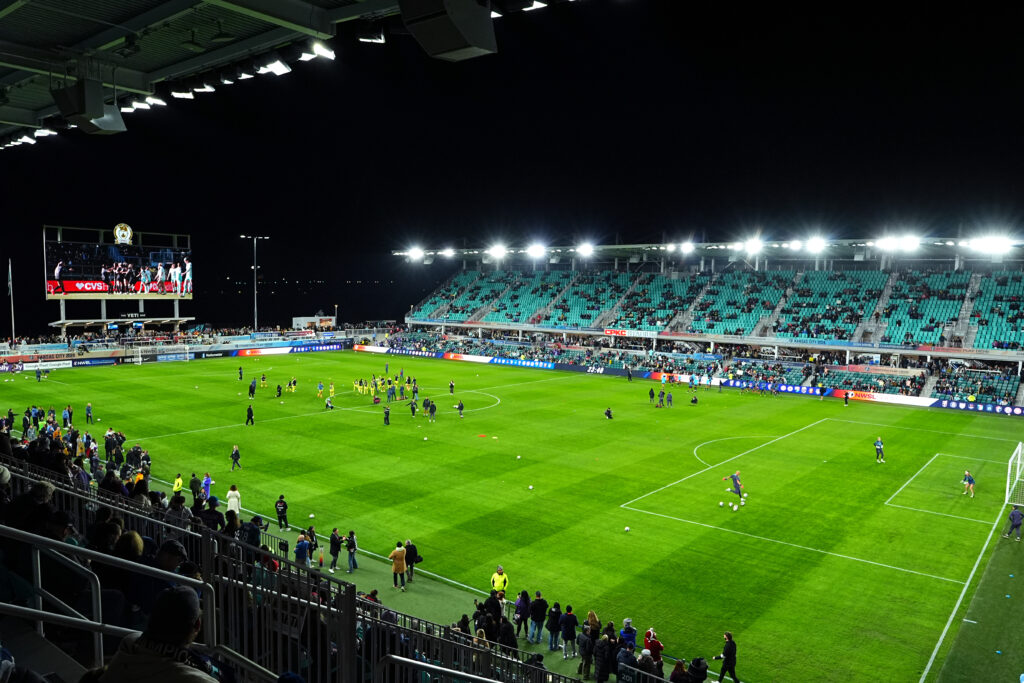
Terms of the NWSL misconduct settlement
In addition to the restitution fund, the attorneys general are requiring league-wide policy changes. These include hiring a league-wide safety officer and increased rigor in vetting team staff. Teams must also add HR staff and at least one mental health professional, and create multiple avenues of reporting misconduct.
Clubs must now conduct anonymous athlete surveys into team culture and coach conduct each year, the results of which will be shared with the attorneys general.
Additionally, for the next three years, the NWSL must submit biannual reports detailing their progress in implementing these terms. The reports must also overtly flag any complaints of alleged misconduct.
Should it default on any of the settlement's terms, the league will face $2 million in penalties.
"Accountability is not a one-time event — it is an ongoing commitment that never ends," said NWSL Players Association director Meghann Burke about the settlement. "The NWSLPA will continue to ensure that this league never again prioritizes silence over safety.”
Three players exited Gotham FC in NWSL free agency last week, putting the NJ/NY club's superteam status in question as the early offseason brings a slew of roster shakeups.
Headlining the Gotham defectors is starting midfielder Delanie Sheehan, who notched two goals and logged the third-most minutes for the NWSL semifinalists last season. Sheehan will join the Houston Dash, inking a two-year contract with an addition option for the 2027 season last Wednesday.
Joining Sheehan in signing contracts with new clubs are defenders Maitane López, who joined the newly rebranded Chicago Stars FC on a two-year deal last Thursday, and Sam Hiatt, who inked a two-season contract with a 2027 option with the Portland Thorns on Friday.
Though Gotham has seen the biggest exodus since the end of the 2024 NWSL season, they're not the only club suffering losses. Last Wednesday, defender Madison Curry, who led Angel City in tackles by a mile with 45 in her 2024 rookie season, signed a three-year deal with the Seattle Reign.
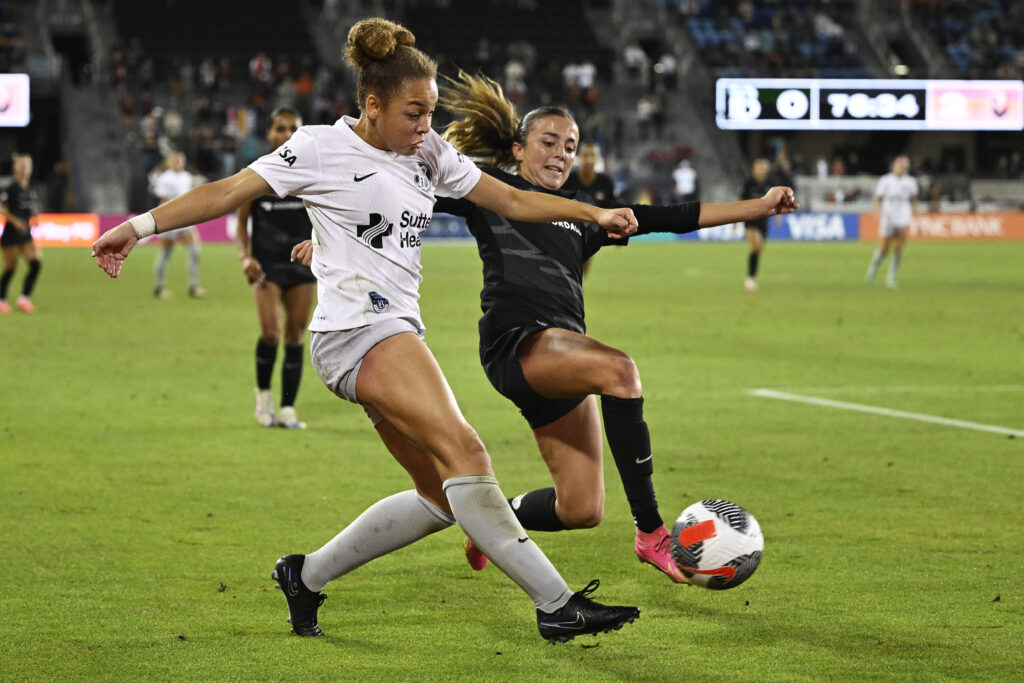
NWSL salary cap, new CBA fuel player movement
Under the NWSL's new CBA, all players out of contract automatically become unrestricted free agents, giving athletes greater control over their professional and geographical futures as their careers progress.
Pay hikes, more playing time, and other personal and professional considerations influence player movement, encouraging league parity in light of the college draft's dissolution.
Along with individual athlete preferences and an exploding pool of free agents, NWSL front offices must still contend with the league's current salary cap. Illustrated by Sheehan's choice to join 2024 last-place Houston rather than stay with a Gotham side that won the 2023 championship and finished third last season, it can be difficult to maintain such hyper-talented rosters under the current salary cap.
This lineup reshuffling will only accelerate under the NWSL's planned two-team 2026 expansion, further burgeoning this new era of league-wide change.
Earlier this week, ESPN released the results of an anonymous study surveying all 14 NWSL general managers, providing key insights into the growing league.
While nearly all respondents agreed that depth of competition sets the NWSL apart on a global level, they hold differing opinions about the league’s inner workings.
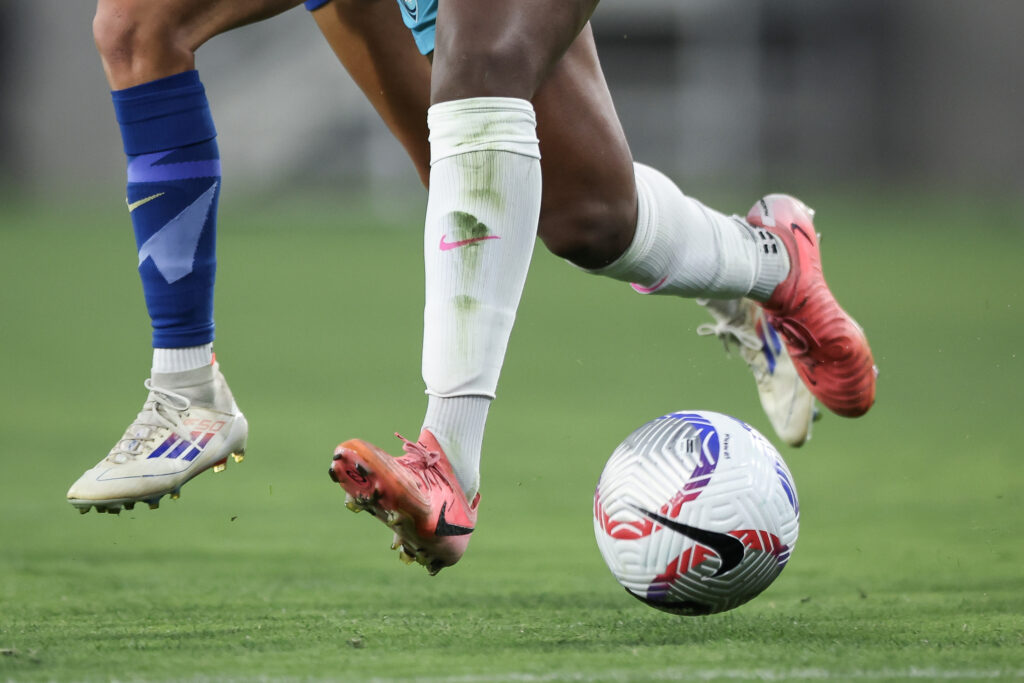
NWSL budgets and entry draft elimination are key concerns
Budgetary practices were a common concern of GMs across the board, while the loss of the entry draft — ushered in by the league's new CBA — presented similar issues.
Some GMs pointed out that many teams aren't yet profitable enough to justify current costs, while others pushed for more spending in order to draw top players away from leagues that don't impose a hard salary cap, like the UK's WSL.
Similarly, because the US lacks any true professional development infrastructure, GMs worry that dropping the college draft will divert young US talent overseas, ultimately softening the NWSL’s competitive edge.
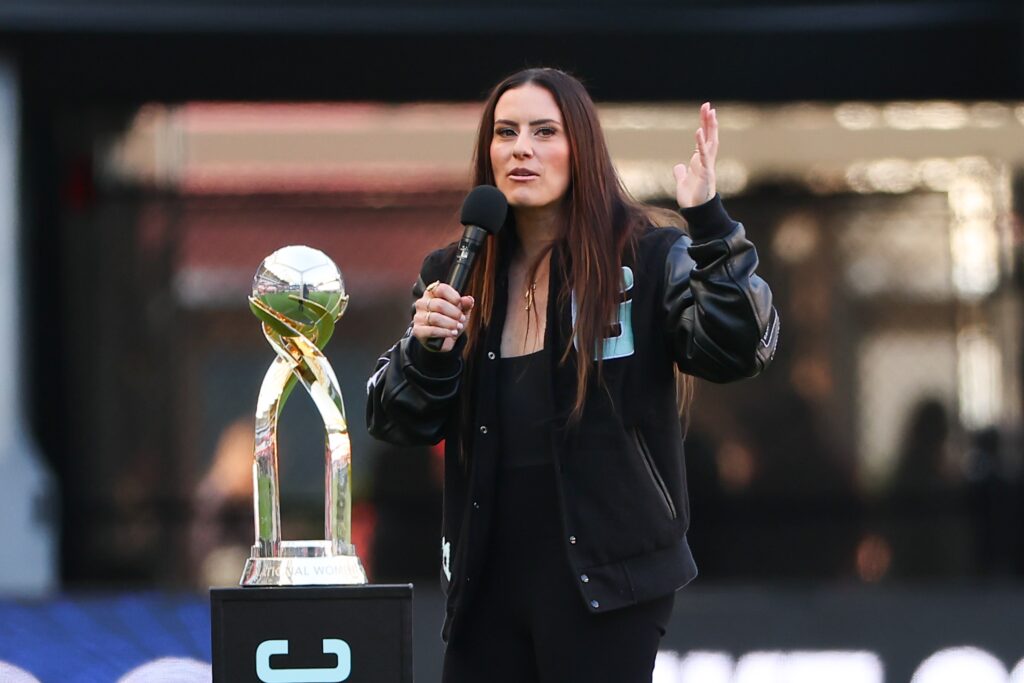
Some GMs claim NWSL player protections have "gone too far"
When asked about recent cultural reforms in the wake of sexual misconduct and abuse allegations, multiple GMs claimed that efforts to protect players have "gone too far," spreading fear and confusion among staff.
Yesterday, retired NWSL star Ali Krieger took to ESPN's Futbol W to respond, saying she didn't "have a lot of sympathy for those few GMs that might be a little bit more disgruntled on this topic."
"You have to, in those positions of power, be respectful and do your job and do it well," she continued. "You shouldn’t have any worry about what you say, how you say it, what you do, how you do it, if you’re just doing the right thing and you’re being respectful and you’re doing your job appropriately."
In this week's episode of The Late Sub, Claire checks in on the big picture for both the NWSL and WNBA playoff races as title contenders emerge, playoff spoilers make their cases, and some teams begin to plateau at an inopportune time.
Then, she chats with NWSLPA President Tori Huster about the league’s landmark CBA, and how concerns about parity might be overstated.
The Late Sub with Claire Watkins brings you the latest news and freshest takes in women’s sports. This is the weekly rundown you’ve been missing, covering the USWNT, NWSL, WNBA, college hoops, and whatever else is popping off in women’s sports each week. Special guest appearances with the biggest names in women’s sports make The Late Sub a must-listen for every fan. Follow Claire on X/Twitter @ScoutRipley and subscribe to the Just Women’s Sports newsletter for more.
Subscribe to The Late Sub to never miss an episode.
In this week's episode of The Late Sub, Claire breaks down the new NWSL CBA which she thinks will change just about everything about how the league runs — for the better.
Later, she takes listener questions covering struggling NWSL clubs, player contracts, the future of the USWNT, and more.
The Late Sub with Claire Watkins brings you the latest news and freshest takes in women’s sports. This is the weekly rundown you’ve been missing, covering the USWNT, NWSL, WNBA, college hoops, and whatever else is popping off in women’s sports each week. Special guest appearances with the biggest names in women’s sports make The Late Sub a must-listen for every fan. Follow Claire on X/Twitter @ScoutRipley and subscribe to the Just Women’s Sports newsletter for more.
Subscribe to The Late Sub to never miss an episode.
On Thursday, the NWSL Players Association (NWSLPA) and NWSL announced their new collective bargaining agreement (CBA), with the agreement laying out major implications for the league, its growth, and its players.
Less than two years into the NWSL's first-ever CBA (ratified in 2022), the expanding league invited the NWSLPA to renegotiate last fall. The original CBA raised minimum salaries, introduced free agency, set safety and health standards, and provided player housing and transportation.
The new CBA runs through 2030, with a performance-based reopening trigger to ensure future revenue is equitably shared.
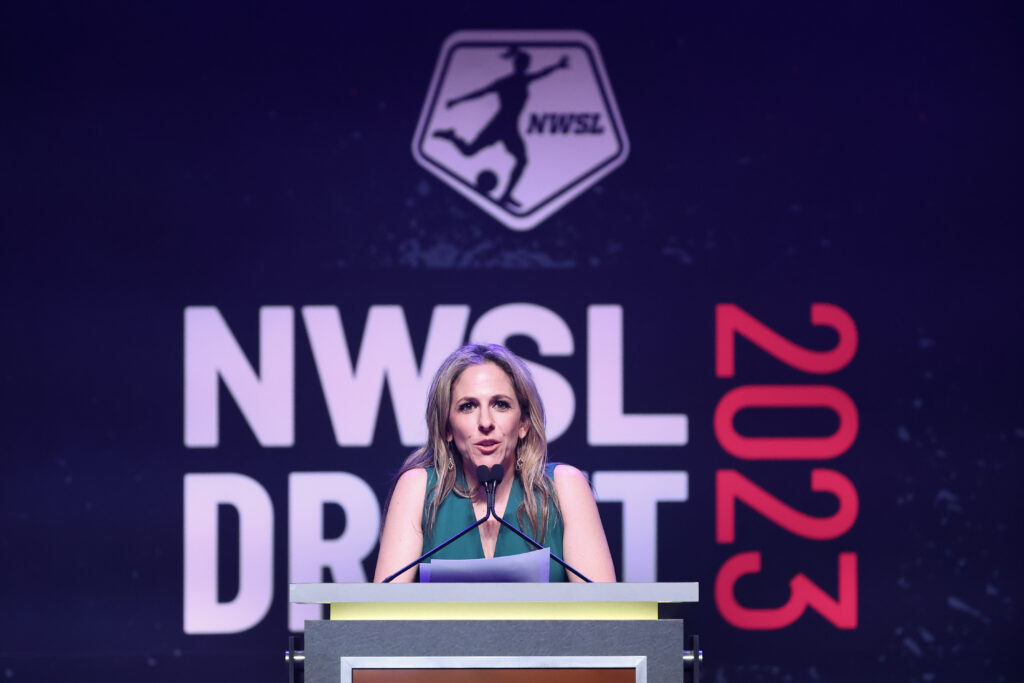
CBA makes NWSL the first pro US league to eliminate drafts
The most significant changes in today's agreement revolve around career choice, starting with the elimination of both college and expansion drafts.
The NWSL is the first pro US sports league to grant incoming athletes control over their placement, establishing a system more akin the college recruiting process. According to the terms, players will automatically become free agents once their current contracts expire and can no longer be traded without prior consent.
Workload management — including guaranteed breaks and new travel and scheduling models — was also addressed.
In addition to minimum base salary requirements, teams now must divert a percentage of their revenue toward player compensation.
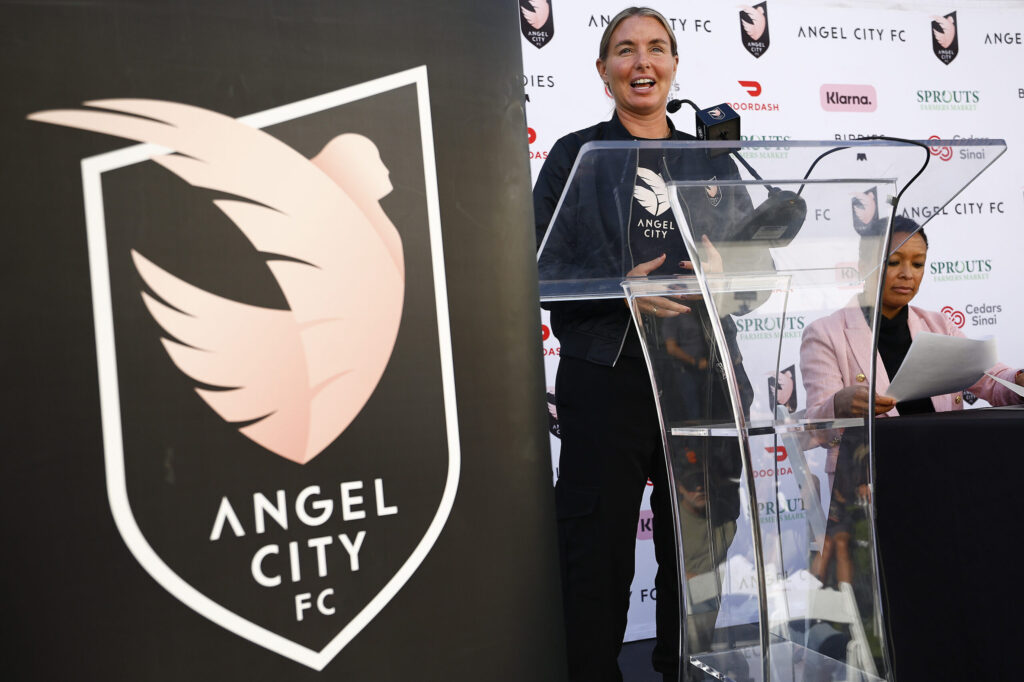
NWSL growth key to new NWSLPA bargaining agreement
Given the NWSL’s $240 million media rights deal and record-breaking team valuations, the NWSLPA is continuing to ensure the league passes along those gains, from doubling the salary cap last January to today’s renegotiated CBA.
The deal also offers the NWSL the ability to lead the pro sports charge when it comes to transparency and putting players first.
When the NWSL and NWSL Players’ Association ratified their first-ever collective bargaining agreement on Jan. 31, one of the last pieces to come together in the final days of negotiations was Article 20: “Group Licensing of Player Name, Image and Likeness.”
The section states that the NWSL and its clubs recognize the NWSLPA as the players’ agent in executing commercial rights toward the use of their names, such as trading cards, video games, clothing and toys. Group licensing enables a revenue stream for players and the NWSLPA so that the union can continue to negotiate CBAs and be a presence in the NWSL ecosystem.
The measure was a sticking point for players during the final rounds of discussions with the league. The U.S. women’s national team players, especially Alex Morgan, were adamant about the importance of those rights after having gone through similar negotiations with U.S. Soccer.
While some sections of the CBA required more compromising in the end, the NWSLPA felt that Article 20 was a big win.
“I credit the NWSL for staying in there with us and coming to an agreement on an issue that is of high importance to players,” NWSLPA executive director Meghann Burke told Just Women’s Sports. “This is a recognition of the control and autonomy that players should have over their own name, image and likeness, which is inherent to the person.”
On Wednesday, the NWSLPA built on the progress from the CBA with the announcement of a new exclusive, multi-year partnership with OneTeam Partners, a leader in commercializing collective licensing rights of professional athletes. Under the NWSLPA’s agreement, OneTeam will provide NWSL players and the NWSLPA with group licensing representation to maximize the value of group player rights.
OneTeam has already partnered with other athlete groups, like the USWNTPA, WNBPA, NFLPA, MLBPA, MLSPA and U.S. Rugby Players’ Association. The NWSLPA is confident OneTeam has the experience and tools to pull the them forward at a faster rate while making players’ needs the top priority.
“I found that maybe among the most compelling features of OneTeam is that they get it,” Burke said. “They know what a labor union is. They know that our fundamental mission is to serve the athletes we represent … The commercial opportunity stems from that, but we’ve got to serve and protect our members first and foremost.”
Burke also appreciates how much OneTeam has contributed to the NWSLPA’s evolution as a players’ association.
“They’ve really helped us learn, kind of get smart on group licensing, if you will. But they’ve never lost sight of the fact that we’re a labor union,” she said.
“We think there’s so much growth to be had in women’s soccer and in women’s sports,” said OneTeam spokesperson Eric Winston. “To be working with the NWSLPA and grow it from the beginning, we’re really excited about it … I can’t understate the magnitude of them now having a CBA and us helping in any way we could there.”
Working alongside OneTeam’s other major professional sports partners also gives the NWSL a seat at the table.
“[Women’s sports] is something we believe in,” Winston said. “Quite frankly, to be completely blunt with you, it’s good business.”
One request the players have is to give every fan the option to purchase a name-and-number replica jersey of their favorite player. There has historically been a shortage of jerseys and merchandise in women’s sports, and through OneTeam, the NWSLPA is eager to get those products out into the marketplace and create revenue streams back to the players.
“I think the CBA speaks to who we are, and group licensing speaks to where we want to go,” Burke said. “We’re really, really excited about launching something that I think is just full of potential, it’s full of promise. There’s a lot of unrealized potential in this space, and as players, we said throughout CBA negotiations we want to bet on ourselves. Group licensing is a way of us betting on ourselves.”
Jessa Braun is a contributing writer at Just Women’s Sports covering the NWSL and USWNT. Follow her on Twitter @jessabraun.